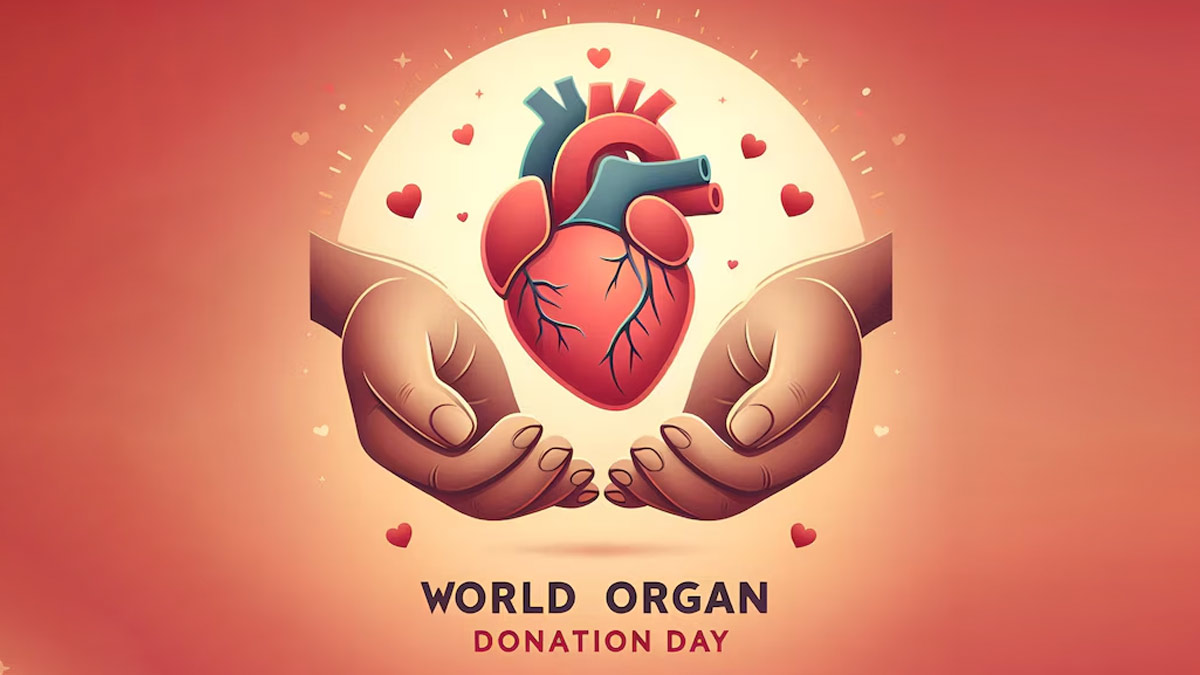
Organ donation is a life-saving act that can dramatically improve the quality of life for individuals suffering from organ failure. It is the process of giving an organ to someone else who needs a transplant, which can be done by living or deceased donors. On this World Organ Donation Day, observed on 13 August every month, we explain the intricate process behind organ donation, particularly kidney donation, from the initial consent to the final transplant. We spoke to Dr K Kranthi Kumar, Consultant Nephrologist, Asian Institute of Nephrology and Urology, Hyderabad, who shared a detailed overview of the steps involved, the eligibility criteria for donors, and what to expect during and after the procedure.
Table of Content:-
According to a 2023 study, organ donation involves the transfer of a human organ or tissue from either a living or deceased person to a recipient in need of a transplant. In many cases, organ transplantation is the most effective treatment for organ failure.
The Kidney Donation Workup Team

The kidney donation process involves a dedicated team of healthcare professionals who ensure the donation is safe for the donor and effective for the recipient. Dr Kumar listed the team involved in the organ donation as follows:
- Living Donor Coordinator: This individual conducts the initial screening and provides education about the donation process. They guide the donor through the evaluation process and maintain the donor's evaluation records.
- Nephrologist: A physician responsible for conducting a thorough medical evaluation to ensure the donor is medically suitable for donation. The nephrologist checks for any medical conditions that could pose risks to the donor or be transmitted to the recipient.
- Living Donor Surgeon: A specially trained surgeon who discusses the surgical procedure, including potential risks and complications. The surgeon also evaluates the donor's suitability for surgery.
- Specialist Consultations: In some cases, potential donors may need to consult with other specialists, such as a pulmonologist or cardiologist, to ensure they are fit for surgery.
Also Read: Separating Fact From Fiction: The Reality Of Organ Donation Myths
Medical Tests and Procedures

Several tests are conducted to assess the donor's health and ensure a compatible match with the recipient:
- Blood Tests: These determine the donor's blood type and check for infections, such as HIV, Hepatitis B, and C.
- Heart Function Tests: An echocardiogram or stress test is performed to evaluate heart function.
- Kidney Function Tests: A CT scan and DTPA renogram are conducted to assess the anatomy and function of the donor's kidneys.
Eligibility Criteria for Kidney Donation
Who Can Donate?
- Individuals aged 18 years and older
- Healthy individuals are free from renal, infectious, medical, and psychiatric diseases
Who Cannot Donate?
Individuals with
- Diabetes
- Uncontrolled hypertension (HTN)
- Cardiac problems
- Psychiatric illness
- Active cancer
Also Read: From Donor To Recipient: Expert Explains The Guidelines For Organ Donation
Kidney Donation Surgery

"Kidney donation surgery is performed under general anaesthesia and typically lasts 2-3 hours. Most donors remain in the hospital for two days and can resume their normal activities after about six weeks, depending on the nature of their work", said Dr Kumar.
Post-Surgery Care
Recovery Period
"Laparoscopic surgery is the preferred method due to its minimally invasive nature, which allows for quicker recovery. The typical hospital stay is 2-3 days. Donors may experience bloating, constipation, and some pain around the incision as it heals", added Dr Kumar. Heavy lifting should be avoided for about six weeks, and donors are advised to steer clear of contact sports to protect their remaining kidneys.
Life Expectancy and Health Considerations
Living donation does not affect life expectancy or significantly increase the risk of kidney failure. Most donors with a single normal kidney lead healthy lives with few complications. Regular annual health checkups are recommended.
Pregnancy After Donation
Pregnancy is possible after kidney donation but it is usually advised to wait at least six months after surgery before attempting to conceive.
[Disclaimer: This article contains information provided by an expert and is for informational purposes only. Hence, we advise you to consult your own professional if you are dealing with any health issues to avoid complications.]
Also watch this video
How we keep this article up to date:
We work with experts and keep a close eye on the latest in health and wellness. Whenever there is a new research or helpful information, we update our articles with accurate and useful advice.
Current Version